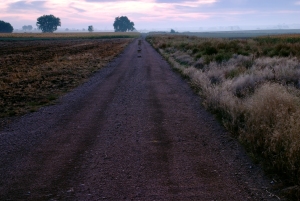Recently, while tapping away at a work-in-progress, I hit the buffers. The ideas that once seemed fresh and exciting began to look dull, and the words that once seemed so alive suddenly became leaden, lifeless artefacts. Matters weren’t helped by the fact that I was beginning to sense a looming deadline – not, I should stress, a deadline that had been imposed on me, but one that I had imposed on myself. Feeling that time was running out, I forced myself to sit down and write for a certain number of hours every day; yet during those hours, I often found, I actually managed to achieve very little. I was putting in the hours, all right, but I wasn’t seeing the results.

Eventually, I did what I often do when things get tough: I quit. I closed the laptop, walked away, and spent the next few hours doing domestic chores. I went for a walk, and cooked the dinner. The next day, I decided not to write at all. I spent a few hours wandering around a market in the village instead.
During this time, I wasn’t consciously trying to “think things over”. But the subconscious is a wonderful thing, and at some point during the second day one of the knotty problems that had been bothering me suddenly came into focus and unravelled before my eyes. I saw the way forward – and I rushed home, opened the laptop, and spent four of the most productive hours writing that I’ve enjoyed for a long time.
The pressure to write quickly, to write more, to “be a brand” – that was actual advice that I once saw being handed out to authors, though I can’t now find a link – can be deadly to creativity. This linear way of thinking, while good perhaps for business, can be eminently unsuitable for creative, imaginative activities. When I’m writing, I often find that I’m delving around in a largely subconscious stew of images, ideas, emotions and connections. This, obviously, is not a linear process. It isn’t responsive to deadlines. It can’t be packaged and sold like Persil or Coca-Cola.
It is, in fact, a little bit like play.

I’ve often found that the same is true in my day job, which at its simplest involves chatting to Italian teenagers. Attempts to follow lesson plans too narrowly often lead to dull, boring lessons, in which – crucially – students are reluctant to say a word. Departing from the script, however, can on occasion be like a shot in the arm. During a recent lesson, a student raised a question about the best way to give to charity. It wasn’t part of the lesson plan, but it interested the class, and soon they were all weighing in with ideas – and they were talking, and in English, which is what it’s all about. They weren’t consciously aware of working; they were playing.
Being creative and “thinking outside the box” are often lauded today, not least in the worlds of business and education, but the distressing fact is that creativity is not really highly valued in these spheres. How can it be, when they are focussed on certain, narrowly defined results (profits or exam results), and on the best and most efficient ways to achieve these? More to the point, this results-oriented thinking influences authors too, including (or perhaps especially) authors who are their own publishers. Commonly desired results – more books published, more sales, more readers – have an influence, and often a deleterious one, on the writing process. This book has to be ready by the end of the year, we tell ourselves; I have to write something that will sell, something that will, in the eyes of the world, justify what I’m doing.

“Get it right, or get it out there?” was a question I once saw posed on a forum frequented by self-publishers. I’d have thought the answer was obvious. Get it out there before it’s ready, and no one will regret it more than you. But the author in question appeared to have been browbeaten by the constant messages conveyed to us about the importance of being prolific and popular. A steady stream of mediocre books, he seemed to think, was better than the measured, painstaking creation of good books. In the short term, and from a purely commercial point of view, he might even have been right. But in the long term?
I’m a believer in taking your time, getting it right, and in taking time off and playing. Writing isn’t heart surgery, or even insurance banking. It probably won’t make much difference whether your book is ready this year or next year. Tune out the annoying little voices that tell you otherwise. Don’t worry about ticking boxes.
Enjoy yourself, and enjoy the lack of pressure. Mess about a bit. It’s playtime.

I have been trying to wrap my head around the exact message you have so eloquently stated here Mari – thank you, and great job!
It is amazing how what is said and what is done in today’s world are sometimes so misaligned. We hear that creativity and out-of-the-box thinking are desired and needed. And yet, the actions we often see reward conformity and rigid structure. Don’t get me started 😉
I have just finished a first draft of what I guess you would call a novella (somewhere between a short story and novel). I had worked to create a new scene each day. And, like you, I found that simply sitting down to put in the time, however laudable to a commitment it might seem, was just plain dumb and stubborn in some cases. Writing words for the sake of writing words, to me at least, is non-productive. I’m okay with starting out with no idea what I’m going to write on a certain day. And, I’m okay with giving it an honest college try to work myself into a flow. But, if I don’t come to that state in a reasonable amount of time, I find it best to set it aside and revisit it later.
The tough part for me is really letting go of it, not thinking about it one iota, and allowing that precious subconscious mind to take control. If there was a way to cultivating thinking about not thinking, we’d be able to make millions 😉
Bottom line is I agree wholeheartedly with you. We each need to find our own pace, our own rhythm that works best for us – not only in our writing lives, but everywhere else in our daily lives also. Great post Mari, thanks for sharing and best wishes for an inspired day!
Hello Dave, and thanks for the comment! I’m glad I’m not the only one. I’ve always found that writing cannot be forced – or that, if it is forced, the results tend to be perfectly horrible (at least in my case). This is why I find I have to disagree with those who treat writing as a business like any other. Creating a book is not like manufacturing cornflakes :-).
I’m in agreement with you, Mari. I would say that anyone who just wishes to have an artefact to show the world rather than a properly completed manuscript is probably just an egotist rather than a writer. It’s one of the problems that arises once the gatekeepers are removed. I think some people confuse churning out words with creativity… As you say, real writing takes time, allowing for reflection, rewriting and editing.
Which work-in-progress is this? What stage have you reached?
Hi Paul, and thanks for commenting. I’d say we’re certainly in trouble when we confuse a ‘production line’ approach with actual creativity, and yet I see people doing just that all the time. It’s rife in the self-publishing community; but then, to be absolutely fair, I think it’s also present in the trade publishing world.
This work-in-progress has a somewhat tortured history. I’ve spent much of the past year tinkering with two other manuscripts that, ultimately, just didn’t seem to work. Eventually I decided to leave them to either mature or die on their own, and am now working on a WIP that owes much to my love of all things gothic. So far so good, but having previously written a 140,000 word manuscript that went nowhere I know not to take anything for granted. Whether this one will fare any better than its unfortunate predecessors remains to be seen… 🙂
Yes, that’s the thing with current projects – you generally don’t know whether they’ll be any good until you’re nearly finished with them. Gothic sounds good!
I think the half-realised book is much less common in conventional publishing because editors/publishers act as gatekeepers. My conventionally published book wouldn’t have been allowed to go out in an unfinished state.
Mari, I didn’t realize it was possible to love and respect you more than I already do, but it is. This post is honest about one of the toughest challenges we face as writers: that of hitting the buffers while writing a story that had been full of life. I have also run into the (painful) truth that I cannot follow the prevailing advice to publish early and often. I would rather produce my best work than produce something/anything just for the sake of “growing my virtual bookshelf.” It is a point of honor, of *right-ness,* to produce the highest quality of fiction I can. For me, and for you, too, writing is not a way to make myself popular or to become rich. Writing is an avocation and a calling. It deserves more than what the inauthentic rush to publish produces.
I think that art can’t be rushed. It doesn’t fit deadlines. One of the advantages of self-publishing is that there are no imposed deadlines. We can spend two years on one work, if that is what the story requires, rather than slam it out into the world ill-formed and like a drunk with it’s shirt on backwards.
Play, too, is an overlooked facet of creation. We should approach creating with a seriousness, but also with a sense of play. Writing isn’t a dead-faced assembly line, but a living breathing act of faith that we can connect with other people beyond time and outside of the confines of this particular space of here and now.
Thank you for bravely sharing what you experienced!
As ever,
-aniko
Thank you, Aniko (and thanks for re-blogging)! I’m so glad there are others out there who think as I do. If self-publishing ends up eating itself, I think it will be because of this mad rush to publish, in which concerns about quality come a very poor second. Like you, I think that anything worthy of the name ‘art’ does not fit neatly inside the artificial constraints of externally-imposed deadlines. I’m sure that there are others who would disagree…
Your willingness to be honest and open about the difficulties inherent in writing is an example to us all, Aniko!
Reblogged this on Aniko Carmean and commented:
Mari writes a thoughtful post on the nature of writing, play, and the fast-publishing milieu. If you are an indie writer, this is a post you should read. Mari exposes a creativity-killer, one that walks in our midst but is almost never discussed. She is honest and brave, and this is evident not just in this post, but also in her published fiction. Please take a moment to read, respond, and share your experience with losing the muse – and getting her back!
As ever,
-aniko
I loved everything about this post! Thank you for the timely reminder as I start to work on my 2nd book.
Hello Satin, and thanks for commenting! I’m glad you enjoyed the post. Good luck with your second book!
Some years ago British research into the creativity of UK advertising in the eighties and nineties revealed it was down to the simple fact that children then grew up being inventive i.e climbing fences, trees,pretending to be a pirate/queen , a hero/heroine, being in the scouts/girl cubs etc. Now we are like the Asians in rote learning, with grades being the goal rather than the pupil. In the eighties when Stephen Spielberg won the Irving Thalberg award , he apologised for his type of productions saying in the old days that a generation of readers produced a generation of writers : now look to the rubbish the once so creative Hollywood produced.
I found your site when I read Pope Francis’ talk yesterday to the Salesians and mentiioning the dark history in Turin ….I then happened on your insightful 2012 article
Hello John, and thanks for visiting my blog and commenting! The research you mention sounds very convincing to me. My day job is in education, and I’ve found that nowadays getting grades – as opposed to being educated, in the truest sense of the word – is generally deemed the most important thing. That tends to stifle an awful lot of creativity and thinking outside the box; but it also seems to be the way of the world now, so I don’t know what can be done about it really. I keep on hoping that something will change…
I’m glad you enjoyed the Turin article!
I couldn’t agree more! I’ve been struggling with this for years. I come from a very deadline orientated creative industry (TV), but it works because there are many people to bounce ideas off. But writing a novel is so solitary, and when you hit those snags you can’t always just push through. I’ve found that stepping back and taking a break inspires the biggest breakthroughs in my own writing. Thanks so much for this post!
Hello Heather, and thanks for commenting! I imagine it would be easier in an industry where lots of people are there to throw in ideas, but writing is indeed a pretty solitary art. Just recently I found an old manuscript I had just about given up on; now, looking at it with fresh eyes, I can see both its potential and a way to solve its problems (I hope!) Taking a break really can work!